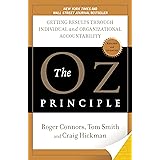HRM asked three lawyers to share some recent employment law changes and legal cases that HR should keep an eye on in 2023.
This year has been a flurry of activity from an industrial relations and employment law perspective, particularly with the recent passing of the Secure Jobs, Better Pay Bill and inaugural Jobs Summit.
We’ve seen a raft of changes, including conversations about new enterprise bargaining agreement processes, changes to parental leave, restrictions on the use of fixed-term contracts and greater protection against sexual harassment at work – plus much more.
Things are unlikely to slow down in the next year, with many of these changes set to kick off at various stages in 2023. HRM asked three lawyers to comment on recent legal changes they think could be hot-button issues next year. Here’s what they had to say.
The independent contractor saga continues
Submitted by Michael Byrnes, Partner at Swaab.
Two High Court decisions handed down on the same day in February 2022, Construction, Forestry, Maritime, Mining and Energy Union & Anor v Personnel Contracting and ZG Operations Australia Pty Ltd and Anor v Jamsek and ORS, which relate to determining whether workers should be classified as independent contractors or employees, are of major significance and will likely continue to have widespread repercussions in 2023.
In short, the decisions give primacy to the terms of the written contract between the parties, and the rights and duties that contract creates, in determining whether the relationship is one of employment or independent contractor.
As noted by the High Court in Personnel Contracting (and applied in Jamsek)

“…where the terms of the parties’ relationship are comprehensively committed to a written contract, the validity of which is not challenged as a sham nor the terms of which otherwise varied, waived or the subject of an estoppel, there is no reason why the legal rights and obligations so established should not be decisive of the character of the relationship. “
In emphasising contractual terms, the High Court has provided greater certainty to business, eschewing the broader, more nebulous approach favoured by the Federal Court which assessed the totality of the relationship (describe in one of the cases as its “substance and reality”) including the conduct of the parties after the contract was entered into.
What should employers and HR do?
To benefit from this decision, businesses should ensure that when contractors are being engaged there are comprehensive written employment contracts in place containing terms consistent with contracting rather than employment (both in name and substance).
This means, broadly speaking, terms such as: the worker not being under the control of the principal (as an employee would be), payment being based on outcome rather than hours worked, the worker invoicing for services performed, the worker providing tools and equipment for the performance and services, and a term stating that the relationship is one of independent contractor not employment.
With such a contract in place businesses will, as a general proposition, be in a strong position to defend against a subsequent claim from a worker that the relationship is one of employment (with the various entitlements that entails, such as sick leave and superannuation).
Even though the High Court decisions provide a higher degree of certainty in relation to the engagement of contractors, businesses still need to ensure that such engagements are bona fide, not merely part of a strategy of using contracting to avoid award or other entitlements for people who are, in substance, employees.
All such proposed engagements should be carefully reviewed by either HR or legal functions within businesses to ensure they don’t cross the line into sham territory.
We could see an uplift in utilisation of the whistleblower regime
Submitted by Amy Zhang, Team Leader and Executive Counsel, Harmers Workplace Lawyers
The new whistleblower regime under the Corporations Act 2001 (Cth) first came into effect on 1 July 2019.
Among other protections, the regime protects eligible persons who make, propose to make, or can make, eligible whistleblowing disclosures from detrimental action being taken or threatened against them.
While not all employees of all organisations will be protected by the regime for ‘blowing the whistle’, and not all complaints will be covered, the 2019 regime does expand the scope of protections and can be considered a complement to the adverse action regime under the Fair Work Act.
Businesses (including management) that take detrimental action or threaten detrimental action against a person who makes an eligible disclosure (see details here) can be liable for compensatory damages, exemplary damages (which are designed to punish a wrongdoer), significant penalties, costs, and other forms of relief ordered by the Court.
Although the new regime came into effect in July 2019, there has still not been a final substantive case determined by the Courts under these provisions. However, there have been a small number of interlocutory decisions arising from summary dismissal and strike out applications concerning the scope of the new regime and whether the applicant is eligible for protection under the regime.
The dearth of cases is not unusual, and it is expected that we will see more cases under the new whistleblower regime next year as more applicants become aware of and utilise it and more cases make their way through the courts.
The pace of utilisation of this regime is similar to what we saw with the adverse action regime which took a few years to kick off.
What should employers and HR do?
“To guard against an uptick in such cases and avoid falling foul of the provisions, businesses should ensure employees re-familiarise themselves with the whistleblower regime.” – Amy Zhang, Team Leader and Executive Counsel, Harmers Workplace Lawyers.
In the meantime, and to guard against an uptick in such cases and avoid falling foul of the provisions, businesses should ensure employees re-familiarise themselves with the whistleblower regime, including whether their business is covered by it, who is an eligible whistleblower (noting whistleblowers do not have to be employees), when a disclosure is protected under the legislation (including who the disclosure needs to be made to and what the disclosure needs to relate to), and what constitutes a detriment.
This can be done through preparation and (re)circulation of policies and fact sheets, and training.
Read HRM’s wrap up of the 2019 whistleblower changes.
Employers will need to respond to the Respect at Work Bill
Submitted by Fay Calderone, Partner, Hall and Wilcox
In over 20 years practicing in this area, never before have I seen more interest, discussion and concern about this from employers, leaders and boards about sexual harassment in the workplace.
There’s finally recognition of this as a complex cultural problem and a work health and safety hazard that needs to be addressed, and recognition of the catastrophic impact it has on the physical and mental health of survivors and those around them.
Australian employers already have obligations under work health and safety legislation to ensure workers are not exposed to risk from sexual harassment. Sexual harassment and sex discrimination are also unlawful under discrimination legislation.
However, because of the continuing experience of sexual harassment in Australian workplaces, the Federal Government is implementing significant changes to the sexual harassment landscape.
As of last month, the government has implemented all recommendations of the Respect@Work Report that were not implemented by the former government. This culminated in the Respect at Work Bill, which was passed on 28 November.
Under the new legislation, responsibility will now be on employers to actively prevent sexual harassment, sexual discrimination, and victimisation in the workplace.
The Respect at Work Bill will:
- Place a positive duty on employers to take reasonable and proportionate measures to eliminate sex discrimination, sexual harassment and victimisation, as far as possible.
- Strengthen the Australian Human Rights Commission with new functions to assess and enforce compliance with this new requirement, including the capacity to give compliance notices to employers who are not meeting their obligations.
- Expressly prohibit conduct that results in a hostile workplace environment on the basis of sex.
- Introduce ‘cost neutrality’ cost protection provisions for complainants; and
- Ensure Commonwealth public sector organisations are also required to report to the Workplace Gender Equality Agency on its gender equality indicators.

Credit: Pexels photo by Sora Shimazaki
These changes mark a new era for Fair Work, which was further cemented when the Fair Work Legislation Amendment (Secure Jobs, Better Pay) Bill 2022 (Fair Work Bill) passed on 2 December 2022. This Bill overhauled aspects of the Fair Work Act 2009, including, amongst other changes, the inclusion of a prohibition on sexual harassment of:
- A worker in a business or undertaking
- A person seeking to become a worker in a business or undertaking
- A person conducting a business or undertaking (PCBU).
The prohibition extends to sexual harassment by third parties, such as customers or clients.
Significantly, employers may be vicariously liable for any sexual harassment perpetrated by their employees or agents, unless they have taken all reasonable steps to prevent the acts.
The FWC now has the power to make ‘stop sexual harassment orders’, on applications made within 24 months of the last alleged contravention. Like the FWC’s ‘stop workplace bullying’ jurisdiction, the FWC would need to be satisfied that sexual harassment would continue if an order isn’t made.
Lastly, echoing existing general protections processes, the FWC could also deal with a sexual harassment dispute in other ways, including by arbitration with the consent of the parties which could lead to compensation orders, or by issuing a certificate allowing the dispute to go to court.
In the past few years, each of the States and Territories have recognised that harassment, including sexual harassment, is a workplace hazard that can cause physical and psychological harm, and so it must be managed like all work health and safety risks. It is now widely recognised that psychosocial hazards can be just as harmful to employee health and safety as physical hazards.
“The cost to an organisation of inappropriate, unhealthy and disrespectful behaviours will always outweigh any top-line benefit a perpetrator is perceived as bringing in.” – Fay Calderone, Partner, Hall and Wilcox.
What should employers and HR do?
So what’s the path forward for HR and employers?
Employers and leaders can no longer be reactive in addressing these issues. Isolated responses to complaints without acknowledging and addressing the systemic and cultural drivers that underpin them will now longer be acceptable.
Employers must act with urgency to:
- Update Anti-Discrimination, sexual harassment and victimisation policies
- Develop robust complaint resolution procedures
- Train boards and leaders about their obligations to proactively manage these issues in the workplace and appropriately respond to complaints
- Train workers on their policies and procedures, what’s acceptance and unacceptable, and how to make complaints
- Train workers on how to be ethical bystanders
- Promptly impartially and thoroughly investigate complaints and adopt a trauma informed approach in doing so
- Reassure survivors that their complaints will be believed and will be taken seriously
- Reassure complainants and ethical bystanders that they will not suffer adverse consequences for making complaints
- Offer EAP and support services to survivors and other impacted workers and time off to access these services and supports where required
- Undertake risk assessments bases on anonymous workplace surveys, exit- interviews, absenteeism patterns, workers compensation claims and complaints to identify and proactively address “hot spots” in their organisations and consult with workers about hazards identified.
Finally, and most importantly, it’s now more critical than ever that policies are consistently and indiscriminately enforced, no matter who the perpetrator is and regardless of their perceived ‘value’ to the organisation.
The cost to an organisation of inappropriate, unhealthy and disrespectful behaviours will always outweigh any top-line benefit a perpetrator is perceived as bringing in.
The culture of our organisations is shaped by the worst behaviour we are prepared to tolerate. We can no longer tolerate ‘jerks’ that are perpetrators of sexual harassment and perpetuate dysfunction in our workplaces, no matter how brilliant they try to convince us they are. It’s finally #TimeforRespect.
What are some legal issues that you’re seeking guidance on for 2023? Let us know in the comment section and we will write a follow-up article in early 2023.
Need help brushing up on HR laws and compliance? AHRI’s short course will give you an understanding of the key elements of legislation, regulation and practices HR needs to be across.
The post Legal changes that could impact employment law in 2023 appeared first on HRM online.
Now retrieving an image set.
Slow Productivity: The Lost Art of Accomplishment Without Burnout
(as of April 19, 2025 02:49 GMT +00:00 - More infoProduct prices and availability are accurate as of the date/time indicated and are subject to change. Any price and availability information displayed on [relevant Amazon Site(s), as applicable] at the time of purchase will apply to the purchase of this product.)Now retrieving an image set.
The Importance of Words in Communication and Ways to Persuade the Opponent Using Words
(as of April 19, 2025 02:49 GMT +00:00 - More infoProduct prices and availability are accurate as of the date/time indicated and are subject to change. Any price and availability information displayed on [relevant Amazon Site(s), as applicable] at the time of purchase will apply to the purchase of this product.)Now retrieving an image set.
Five Obsessions of Elite Organizations: Take Your Business and Your Life to the Next Level
(as of April 22, 2025 03:00 GMT +00:00 - More infoProduct prices and availability are accurate as of the date/time indicated and are subject to change. Any price and availability information displayed on [relevant Amazon Site(s), as applicable] at the time of purchase will apply to the purchase of this product.)Now retrieving an image set.
The World Is Your Office: How Work from Anywhere Boosts Talent, Productivity, and Innovation
(as of April 22, 2025 03:00 GMT +00:00 - More infoProduct prices and availability are accurate as of the date/time indicated and are subject to change. Any price and availability information displayed on [relevant Amazon Site(s), as applicable] at the time of purchase will apply to the purchase of this product.)Now retrieving an image set.
Inclusion Driven Performance: A Framework to Unlock Human Potential and Achieve Organizational Excellence
(as of April 22, 2025 03:00 GMT +00:00 - More infoProduct prices and availability are accurate as of the date/time indicated and are subject to change. Any price and availability information displayed on [relevant Amazon Site(s), as applicable] at the time of purchase will apply to the purchase of this product.)Now retrieving an image set.
Silent No Longer: Advancing the Fight for Disability Rights
(as of April 22, 2025 03:00 GMT +00:00 - More infoProduct prices and availability are accurate as of the date/time indicated and are subject to change. Any price and availability information displayed on [relevant Amazon Site(s), as applicable] at the time of purchase will apply to the purchase of this product.)Now retrieving an image set.
Who: The A Method for Hiring
(as of April 19, 2025 02:49 GMT +00:00 - More infoProduct prices and availability are accurate as of the date/time indicated and are subject to change. Any price and availability information displayed on [relevant Amazon Site(s), as applicable] at the time of purchase will apply to the purchase of this product.)Now retrieving an image set.
Black Power Scorecard: Measuring the Racial Gap and What We Can Do to Close It
(as of April 22, 2025 03:00 GMT +00:00 - More infoProduct prices and availability are accurate as of the date/time indicated and are subject to change. Any price and availability information displayed on [relevant Amazon Site(s), as applicable] at the time of purchase will apply to the purchase of this product.)Now retrieving an image set.
Conquering Crisis: Ten Lessons to Learn Before You Need Them
(as of April 19, 2025 02:49 GMT +00:00 - More infoProduct prices and availability are accurate as of the date/time indicated and are subject to change. Any price and availability information displayed on [relevant Amazon Site(s), as applicable] at the time of purchase will apply to the purchase of this product.)Now retrieving an image set.



























